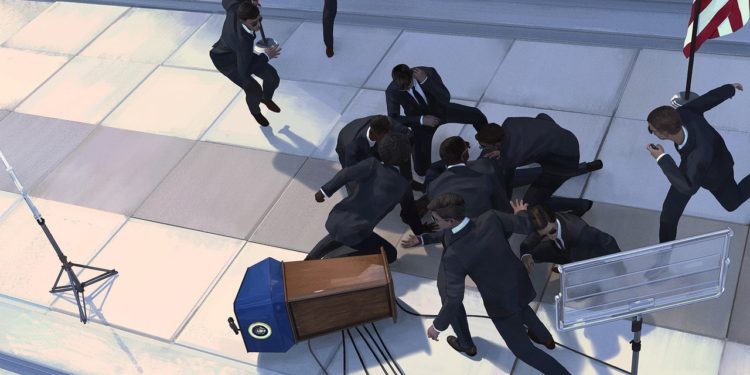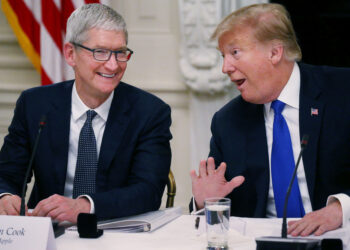By WIRED
“But do you understand what you did wrong?”
She struggled to look him directly in the eye. Her gaze instead fell over his shoulder, where the news was streaming live on his computer screen. Hendrickson was familiar with this posture of avoidance. Since Julia’s adoption at 9 by his old friend Sarah Hunt, Hendrickson had been a mainstay, the person Sarah called when Julia broke curfew, mouthed off to a teacher, or, on one occasion, accused her adoptive mother of being the one responsible for her parents’ deaths two decades before, in San Diego, where they—along with thousands of other migrant workers—had vanished in a flash of nuclear light, leaving no trace.
Hendrickson repeated his question. He wanted an assurance that Julia understood what she had done wrong. Except that Julia knew she’d done nothing wrong. Senator Nat Shriver was vice chair of the Senate Select Committee on Intelligence, or SSCI, which everyone in DC pronounced “sissy.” Shriver had a right to read the report.
12:16 March 12, 2054 (GMT‑5)
The Ritz‑Carlton, Tysons Corner
Lily Bao sat on the edge of the mattress, buttoning her white silk blouse. One at a time, she picked the scattered pillows off the floor. She made the bed, retucking the swirl of mussed sheets into neat hospital corners, flattening out the duvet. She’d learned to do this as a girl in Newport, helping her mother, who’d worked as a maid in dingy hotels when they’d first immigrated to the US. No matter how wealthy Lily became, she always made the bed herself.
He had just left—she so rarely said his name; it was as if he existed in her life only as a pronoun. They’d gotten less than an hour together, a working lunch, as he’d referred to it in his text the night before. It had been, admittedly, one of many such “lunches,” always in a hotel room that she booked. She didn’t mind. She understood his constraints, even though he was single. Like a sailor married to the sea, he was married to his profession, which was politics, and just as a sailor both loves and fears the sea, he loved and feared the people he served, and so kept his relationships out of view. Because who knew how his enemies could use her against him?
Nat Shriver had plenty of enemies. She’d known this about him before she’d known anything else. A great-grandnephew of Maria Shriver, he was equal parts Shriver, Schwarzenegger, and Kennedy … also equal parts California and Massachusetts. He was everything to everyone, a best friend, a worst enemy. The only thing he wasn’t was boring, neutral; it didn’t matter who you were, you had an opinion about Nat Shriver. This senator who a growing number of Americans believed might eliminate the tyranny of one-party rule.
He was also, to Lily Bao’s great surprise, her lover.
12:17 March 12, 2054 (GMT‑5)
São Paulo to JFK
As Chowdhury gazed vacantly out the window, the flight attendant, a middle-aged, heavily lipsticked brunette who appeared to be from another era of air travel, placed her hand on his arm, startling him, so that he felt a slight tremor in his chest. “My apologies,” she said. “Is there anything I can get you before we land?” He asked for some water. Beads of sweat had begun to gather on his forehead, and before he could calm himself with a sip, he felt a minor and not entirely unpleasant vibration in his left wrist, the work of a cardiologist in New Delhi who had installed a serotonin dispenser near his radial artery. Chowdhury took a couple of deep breaths, sipped his water, and turned on the news.
The US president, Ángel Castro, appeared onscreen before a crowd. Square-jawed, with a pompadour of thick black hair, which had hardly grayed in his 10 years in office, Castro stood at a dais with a flotilla of gray-hulled warships behind him at anchor. The chyron read: Twentieth Anniversary of Wén Rui Incident Commemorated in San Diego. It was no coincidence that Chowdhury had chosen today to return to the United States. What surprised him was that the president had decided to mark the anniversary as well. Castro had never before, in the three terms of his administration, wrapped himself in the events of that disastrous war.







Discussion about this post